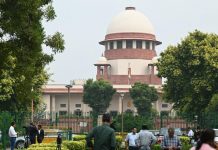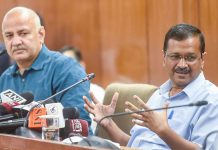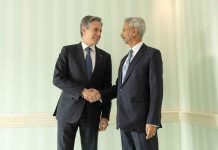
How did your personal engagement with Chanakya come about?
My engagement with Chanakya began with my search to understand India’s ability to reinvent itself. I have been a student both of contemporary India as well as many aspects of its cultural and civilisational legacy. As a diplomat, as someone who is an observer of India, someone who is deeply convinced that we are at that cusp in our young history as a nation where change is essential, I went back to Chanakya, because I saw his ability to be a source of inspiration to reinvent ourselves, which our civilisation is capable of. I did not approach the Arthashastra in its minutiae, because it’s a very specific text in response to a specific time. For me, the Arthashastra is inspiring for its clarity of vision, its comprehensiveness of scope, and for its writer’s abilities to work the kind of rigour and discipline that allows you to achieve goals, and above all, for his insistence on seeing the nation as above all sectoral interests.
What are the key differences between the Nehruvian vision of India and Chanakya’s philosophy of nation building?
There are no fundamental differences, as long as you believe in the validity of an efficacious state, which retains its democratic credentials and inclusive ethos. It’s a myth that Chanakya was a cynic, a Macchiavelli before Macchiavelli’s time. His real concern was always for the welfare of the people, which is obvious when you read the Arthashastra. He believes that otherwise, you are corroding the fundamentals of an effective state. Even if you don’t describe it with sentimentality, the sheer ability to understand what creates an enduring or an effective state would cause you to be concerned about the welfare of the people, which was exactly the principles of the welfare state that Nehru sought to bring about through the prism of democracy. The difference arises, from my point to view, in that the makers of the Indian constitution did not envisage the current situation, where instead of one party with a stable majority that rules for five years, you have a 24-member coalition with a wafer thin majority, which will be the norm for the foreseeable future. This requires us to have Chanakyan honesty rather than Nehruvian nostalgia to be able to understand the problem for what it is. You need to understand with stark and corrosive honesty that today, the functioning of democracy has become the biggest impediment to governance, because all energies go to political management and survival rather than governance, with no thought to long-term enduring solutions because you are looking for quick-fix populist measures. I have to tweak the system to prevent this sterile, self defeating antipathy in governance and democracy.
Could you be more specific on how you would like to tweak the system?
Essentially, we need to have a democracy which functions without taking the voter for a ride. We need more discipline in order to make democracy more credible. So when parties go to the people for their vote, the voter must have all the information. What is the coalition? Who is part of it? What is it that they are promising, and through what timelines? Having come to power, how do we ensure the governments fulfil the role for which they have been voted in? So I provide a compulsory lock-in period for three years for the government to prove its credentials. This is exactly like our anti-defection law. It provides a free run to perform, without the instability of coalitions, for three years. After that, who would destabilise the government just for two years in power?
I found sections of your chapter on security a little problematic. For instance, you begin with this quote from Chanakya: “An enemy’s destruction should be brought about even in the face of great losses in men, material and wealth.” Of course, this was written in an era before nuclear weapons, before man had the ability to literally wipe out the entire human race with the press of one button. You have said that India should be stronger in its relations with Pakistan and China, but do you think that the presence of nuclear weapons in the subcontinent means that we have to be the responsible country, show restraint in the face of war?
That particular quote was not meant to be taken literally. It was meant to merely illustrate that there should be clarity of goals, and that waffle cannot substitute for that clarity. In the unsentimental area of foreign policy, defence and intelligence, idealistic waffle does not help you. On the other hand, Chanakya is the one person who teaches us that in dealing with states which are hostile, there are range of instrumentalities that can be used. I’m not advocating for a moment that we unleash our nuclear arsenal. I’m saying we should talk to Pakistan. But that doesn’t mean that we let our guard down, or ascribe to the real policy makers in Pakistan the same degree of bathos and bonhomie that we would like to cultivate with other constituencies of Pakistan. We seem to have lost our way there. When Pakistan wishes to attack, it attacks. When it wants to appease, it appeases. We react. A foreign policy should not be reactive. A defence establishment should be proactive in terms of its defence requirements in one of the most troubled neighbourhood of the world.
Your solution to Naxalism seems to be to shoot first and talk later.
I have a straight forward approach: win over the naxals. Divide them. Provide every inducement for them to return to the mainstream. But if they don’t, their avowed goal is the demolition of the duly constituted republic of India. That is treason, and no country can have 40,000 square kilometres of its territory under those who do not believe in the duly constituted state. So this drift and waffle about development and punitive technique is totally a self-defeating one, because you cannot enter certain districts to build even a hospital, or a road, or a school. So you have to face this kind threat with unsentimental clarity. But, having one at over, immediately look to one in need of those who are underprivileged and dispossessed. But you cannot sit paralysed, mesmerised by a situation, while they continue to attack with impunity. Your armed forces suffer casualties. That is an unacceptable situation. No nation would accept it, except India.

Pavan K Varma
Aleph
248 pp; Rs 295
But what about the lakhs of people who would be caught in the crossfire of such a conflict?
They are already caught. They are sometimes, against their will, under the tutelage of those who don’t constitute the republic of India. And the armed forces will continue to be predatory without being effective. So there is no security of life for them. And the Naxalites must understand that if they are willing to return to the mainstream, India is assimilative. But if they implacably oppose to the duly constituted state, you have act in a particular way. And again, it’s not punitive action versus development. It’s not either-or, it’s sequential.
A lot of the state’s excesses, in India at least, happen due to mid- and low-level government officials. There is an idealism you speak of, which should exist in our politicians. But there is the rest of the state apparatus, which mostly runs with self-interest as the primary motivation. How do you change that and instill patriotism? Would you make this book compulsory reading?
I do not believe in individual proclivity. I believe individuals behave as per certain norms when there systemic checks to their criminal aberration. That is why in the case of bureaucratic excess of rapacious corruption, I prescribe system checks to change it. That is why I laud the Right to Public Services Act, which has been functioning in Bihar and Madhya Pradesh, where the erring official who does not deliver a service in time is fined Rs 500 for every day of delay. As far as corruption goes, Indians as a whole accept a certain moral relativism, where they will criticise corruption in high places when they pay happily for a chalaan not to be registered against them. I prescribe, therefore, an architecture against corruption not depending merely on the silver bullet of one Lokpal. An example is electoral reform, which is the key. Secondly, I propose the expansion of the neutral intervention of technology in as many areas as where an individual interfaces with the state. It just overarches the human intermediary. You can book an airline ticket online; you don’t need a tout.
This book coincides with your entry into electoral politics. Why did you choose the JD(U) to join and do you think that the Nitish Kumar government has implemented what you have written in this book?
I’m an admirer of Nitish Kumar primarily for three reasons: clean politics, good governance and a secular vision. I believe these are needed for a new paradigm of leadership in our country today. Certainly, there are aspects of this book, which I have seen either as work in progress or implemented in Bihar. A notable example is the Right to Public Services Act. I believe strongly that there is substitute, for instance, to boosting agricultural productivity in order to tackle poverty. Bihar has had an increase rice production increase by 29 percent in one year. The ability to implement exemplary and deterrent punishment against corruption is again something I have seen implemented in Bihar, including the seizure to properties of those who are corrupt. I’m not saying it is in every respect ideal, a lot more needs to be done. But there are many aspects which I admire.













